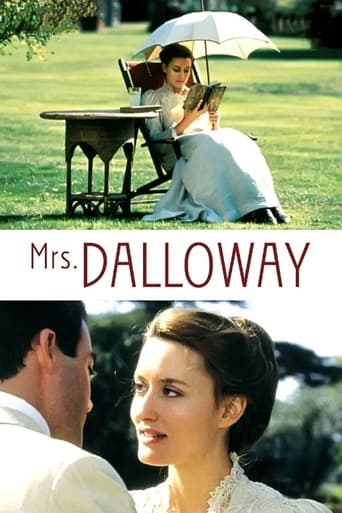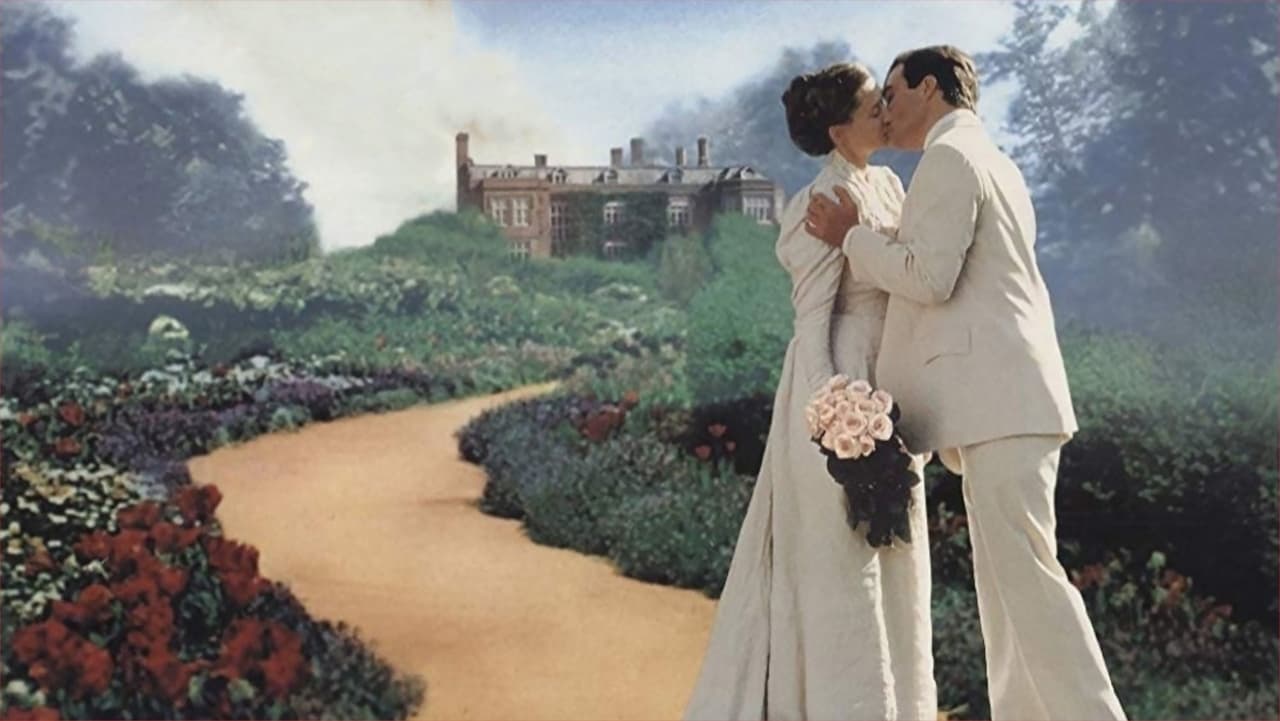thingummybob
Though I haven't read the book, I felt the movie had a lot to offer and should not be so easily dismissed as "boring." Maybe I am biased, I am an ardent fan of Vanessa Redgrave. But the real star in my opinion was Natasha McElhone. She really internalized the role of a blossoming of young girl, who is not a child not yet a woman. She is mischievous, mature yet artless in certain ways and also innately different from the "mature" Mrs Dalloway essayed by Vanessa Redgrave. I also liked Rupert Graves character. I would not have guessed the abrupt ending of his life.My one observation about the movie is till the end I was not too clear about the depth of emotions that Clarissa had for Peter!! Maybe the book also leaves it vague, but some information would have helped me understand why on one hand she treats him in such a cavalier fashion but then again she shows her tender side in her overwhelming concern for him at the end. Hope other people like it as much as I did.
joyincmajor
I usually like period films but this one just seemed to drag and drag. I'd perk up during Rupert Graves' scenes, but Vanessa Redgrave just put me to sleep.I was disappointed in the film. It lacked a little "punch" at the end that I'd hoped it would have.
roy_wood
Like most of Virginia Woolf's literary output, I appreciated the film-version of "Mrs. Dalloway" more than I enjoyed it. There are flashes of blinding beauty in this movie, however, the film's "sum" is not equal to its "parts". Of course, Vanessa Redgrave continues to astound me with her talent. And ---yes, the film is beautifully made and attention to period detail is evident. And --- yes, parts of the story are very heart-rending. Yet.... why does this film satisfy me but not move me? Like a guest at one of Mrs. Dalloway's parties, I am more impressed with the effort that went into the production than the product itself.
Philby-3
Virginia Woolf is thought of as a high-brow rather than popular novelist yet the novel this film is based on sold well when first published in 1924. It is easy to see why there is nothing rarefied in the treatment of its themes, making choices and breaking with the past.Clarissa Dalloway, a society matron, played with startled radiance by Vanessa Redgrave, is throwing a party and while making the arrangements she remembers back to the choice she made 30 years ago as a young woman between two men. One, Peter, charming, intelligent, adventurous, is the sort who went out and conquered India, or at least seduced the Major's wife. The other, Richard, good-looking, loving, a bit boofy, devoid of flair, is the sort that gravitates into politics. Naturally, the young Clarissa (played by Natasha Mc Elhone) has chosen the safe one, but Peter, after a chequered career, has turned up in London and pays her a call. She invites him to the party. Parallel to Clarisa's reminiscences is the story of Septimus (Rupert Graves) a returned soldier from World War I, whose wartime experiences are eating into his sanity. Clarisa is put up as a `modern woman' who refuses Peter's love because she sees it as all demanding and all consuming, despite his attractive personality. Yet she accepts Richard, who wants and needs a dutiful, supportive wife. She also passes up the possibility of love with her close friend Sally. Though shaken when she hears of Stephen's fate from his psychiatrist, a guest at the party, and touched when she meets her old lovers again, she sees her life as going on before, safe and unexciting.
For a film-maker the amount of interior musing generated by Woolf's `stream of consciousness' writing technique presents a challenge and here Marleen Gorris has effectively used flashback to externalise Clarisa's memories. We get two stories artfully intercut, though there is not much tension in either of them - costumes, but not much drama. One does, however, get the feel of how it might have been to be in the upper class during the Edwardian late summer; as if just being there was enough (we even meet the Prime Minister at the party). Woolf and Gorris have evoked the atmosphere precisely, even if, as Lytton Strachey said, there isn't much of a plot. Even the minor characters sparkle. Robert Hardy as Sewell's psychiatist exudes bonhomie and guile, and Margaret Tyzak as the meddlesome Lady Bruton gives us a fine example of the old-fashioned female power broker at work. Overall, the film is rather slow, especially at the start, and I did wonder whether it would have been made without all the government and foundation money listed in the credits, but the quality of the performances redeem it to some extent.


 AD
AD



